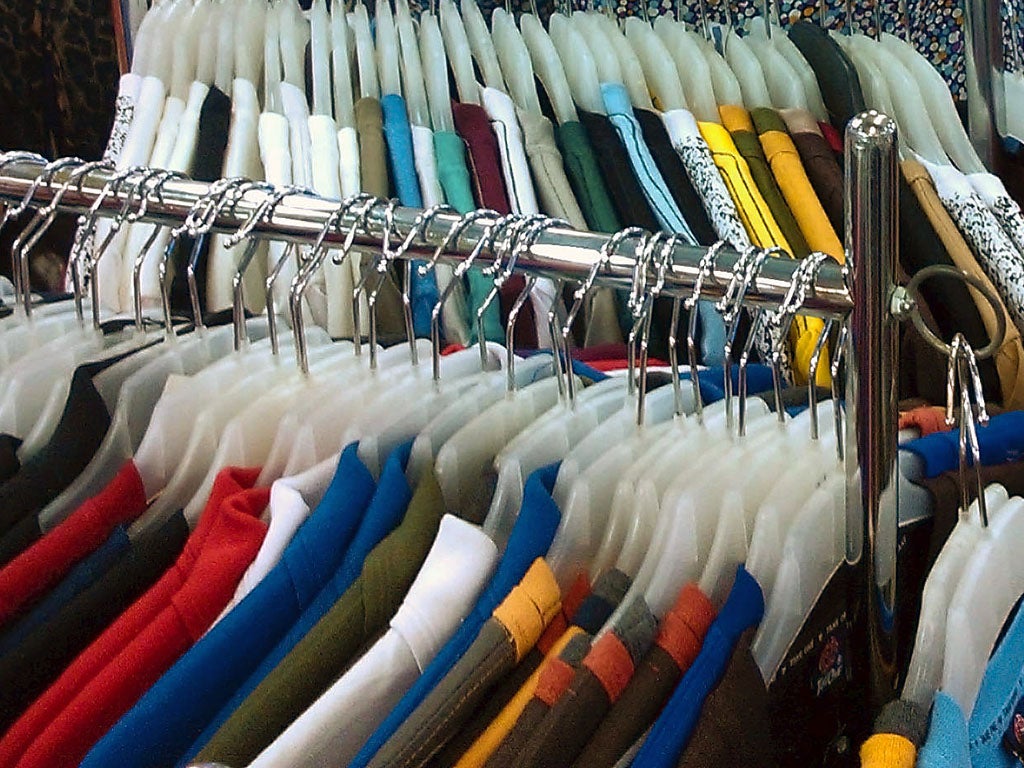Why I'm giving up clothes for Lent
Do we really need to restock our wardrobes so frequently? A fashion fast could help tackle poverty wages in the industry

Could you live with a staple wardrobe of just six items of clothing for six weeks? For example: three tops, one dress, one pair of trousers, and one pair of shoes?
In thriftier times, and in many less affluent countries today, this might constitute a respectable amount of apparel. Today, clothes still only serve a functional purpose for many people. They are merely for warmth, dryness and modesty, and often do not provide even these basics of comfort. Fortunately, the majority in this country don’t have to make do in this way, because clothing in Britain is cheap, plentiful, and disposable.
However, with the growth of consumerism, clothes now need to give us all a sense of identity: to make statements about ourselves that might change from one day to the next. So, for a number of years now, ‘fast fashion’, has been on the rise. This is a race between high street brands to attract consumers by selling cheap, disposable clothing, pushing down prices, and increasing production costs, meaning that brands need to find cheap labour. Such labour is mainly sourced in poor countries such as Bangladesh, which experienced a terrible disaster last year with the collapse of the Rana Plaza garment factory, in which thousands died. Some of the British brands using cheap labour in that factory acknowledged their role and offered compensation to the families of the casualties. But not all labels have been so forthcoming, and many victims and their families have yet to receive recompense.
At this year’s International Women’s Rights Conference, organised by charity African Initiatives, the campaign group Labour Behind the Label will explore how fashion can change the world.
Labour Behind the Label does not support or advocate any boycott of the fashion industry, as the point is not about putting already poor workers into greater poverty by taking away their livelihoods. Instead, a fashion fast will help us think about whether we really need another little black dress or another pair of skinny jeans, and collectively we can slow down demand and the pressures on the garment factories. This will promote better pay and conditions.
As Labour Behind the Label explains: “Brands put huge pressure on factory owners to complete high orders and maintain a fast turnover, which in turn equates to factory owners pressuring garment workers to produce ever greater quantities of clothes. These are produced at poverty wages. In a bid to outdo their competitors, brands push prices down in a 'race to the bottom', and garment workers’ wages remain at poverty levels, and corners are cut on factory safety, resulting in horrific tragedies.”
Fashion consumerism proceeds at a rampant pace throughout the year, as elite designers, catwalk models, and their entourages glide between Paris, London, New York, and Milan. With the season of Lent almost upon us, this is also the time of year when many people start to think about giving something up, for spiritual and other reasons. Maybe you could consider a fashion fast? Wear less to give more.
For more information about the annual International Women’s Rights Conference on 1 March, 2014, contact African Initiatives
Join our commenting forum
Join thought-provoking conversations, follow other Independent readers and see their replies
Comments
Bookmark popover
Removed from bookmarks